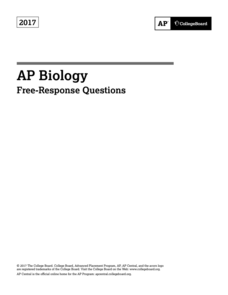Pollination Teacher Resources
Find Pollination lesson plans and worksheets
Showing 498 resources
The Science Spot
Flower Basics
Learn about plants and pollination with a worksheet about the parts of a flower. After labeling the anatomy of a flower using a word bank, kids explain the difference between self-pollination and cross-pollination, and unscramble...
Teacher Web
Plant Reproduction—Structure of a Flower
What happened to the plant in math class? It grew square roots. Here, a set of 11 worksheets provide a review of plant reproduction. It includes the structure of a flower and each part's function, pollination, fertilization, seed...
National Park Service
Biodiversity—Bee Week
If you want scholars to fall in love with bees, this is the unit for you! Celebrate bees with a full week of material—designed for the Next Generation Science Standards—that addresses the importance of pollination and fertilization....
EnLiST
Trap Your Own Insects: What’s in Your Backyard?
Young entomologists construct three types of insect traps—pitfall, pollinator, and panel—before setting their traps out and observing what they caught. They then observe what types of insects the different traps attract.
K12 Reader
What’s Eating You?
Introduce your class to producers, consumers, and pollinators with a reading passage. Class members read the text and respond to five related questions.
Curated OER
Pollinator Habitats
Students read and discuss background information included with this lesson. They brainstorm the best sources for developing a list of native or migratory pollinators. Students work in groups to design habitats based on information...
Curated OER
How Does My Garden Grow?
Learners research flower pollination. In this pollination lesson, students use the Internet to find information on the parts of a flower and pollination. They draw and label a flower and compete a flower power puzzle.
Garden Earth Naturalist Club
Parts of a Flower! Flower Dissection
Sometimes the best way to learn about plants is to see the different parts of a plant yourself. Groups of learners dissect flowers to answer questions about what they observe and what they wonder about their flower.
SciShow Kids
Like Fruit? Thank a Bee!
Bees play a crucial role in pollination. In fact, without bees, a lot of fruits and vegetables would not exist if it weren't for bees. Watch a video that explains and demonstrates how bees pollinate plants.
TED-Ed
Why Are There so Many Types of Apples?
Ever wonder why there are so many varieties of apples? Due to a process called cross-pollination, apple breeding has allowed for the creation of many types of apples. Watch a video that explains how apples are given their creative names.
MinuteEarth
Why Biodiversity Is Good For The Economy
Variety is the spice of life! Biodiversity is important for the health of ecosystemsand also the health of industries like timber and agriculture. Junior conservationists learn the link between biodiversity and profitability in a short,...
Museum of Science
Egg Carton Nursery
Observe nature in action. Young biologists make plant nurseries from cardboard egg cartons. Once the seeds sprout, they move the flowering plants outside and make observations of bees that pollinate the flowers.
College Board
2017 AP® Biology Free-Response Questions
With AP Biology remaining the most popular AP science exam, many teachers need help preparing. The College Board offers the actual free-response questions from the 2017 test covering pollination, germination, and more. Scholars learn the...
Amoeba Sisters
Plant Reproduction in Angiosperms
A colony of bees has moved into someone's home and the owners know how important bees are for pollination. Should they keep the bees? An informative video also includes a guide to plant reproduction including the male and...
Curated OER
Science Jeopardy
Wow! Review an entire semester of biology curriculum playing this Science Jeopardy game! The variety of topics is extremely broad, so you will need to review each question to find if they all apply to your course. As you find material...
Curated OER
Honey Bees - Life Cycle
Bees are the best! Learn about the life cycle of honey bees, their history, and how important they are to our environment. A professional honey bee keeper describes the metamorphosis, hive construction, and life cycle of the bee. A very...
Curated OER
Design a Pollinator
Students make a scientific drawing of a pollinator with at least five traits that make them well adapted to a given plant(s). They describe in their science notebook the adaptations that make their pollinator well suited to a given plant.
Curated OER
From Flower to Fruit
Learners examine how flowers have essentially four parts. They learn both the male and female reproductive parts of the flower, then explore self-pollination and pollination by insects and other animals.
Curated OER
Dissecting A Flower
Students investigate the basic parts of tree flowers and their role in pollination. They study the process of pollination and fertilization of flowers and trees.
Curated OER
What Bees Eat
Students consider the concept that plants and animals are dependent on one another and role-play the interaction between bees and flowers. They identify crops that are dependent on pollination by bees.
Curated OER
Why Are Bees Important?
Students identify and analyze pollination and how bees play an important part in the life cycle of flowering plants. They also identify the process of plant pollination and how bees play an important part in the life cycle of flowering...
Curated OER
Insects Around Us
Pupils fill out worksheets about insects and how they are helpful to our world. In this insects lesson plan, students learn about flower parts and insects that pollinate them.
Curated OER
Reproduction
In this reproduction worksheet, high schoolers review the processes involved with sexual reproduction in animals and pollination in plants. This worksheet has 6 fill in the blank, 5 true or false, and 9 short answer questions.
Curated OER
Life Cycles
Students explore the parts of a flower and pollination of flowers. In this plants lesson, students use an interactive whiteboard to label the parts of a plant and the functions of each part. Students complete a worksheet as an assessment.
Other popular searches
- Bees Pollination
- Flower Parts and Pollination
- Pollination Flow Chart
- Cross Pollination
- 6 Steps of Pollination
- Pollination Activities
- Pollination Flowchart
- Pollination Process
- Pollination and Fertilization
- Plants Pollination
- Cross Pollination
- Plants Cross Pollination

























